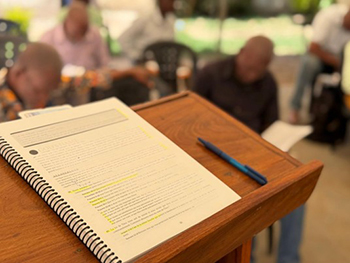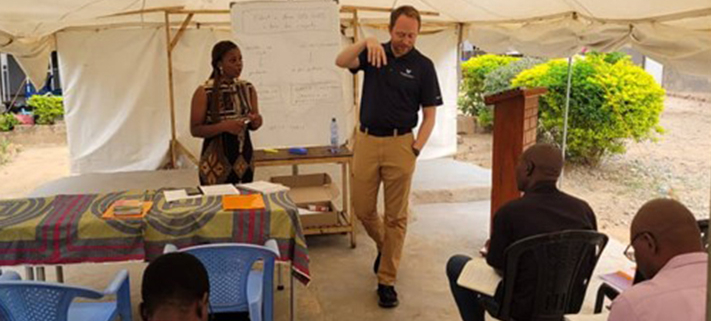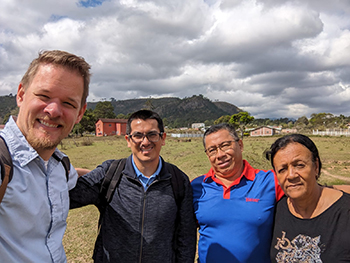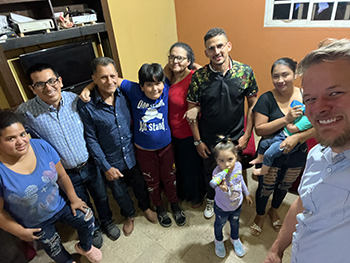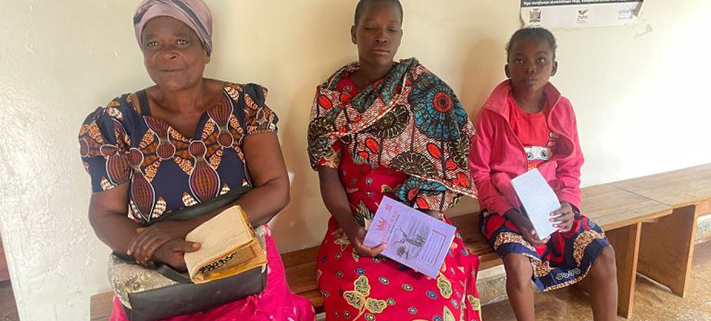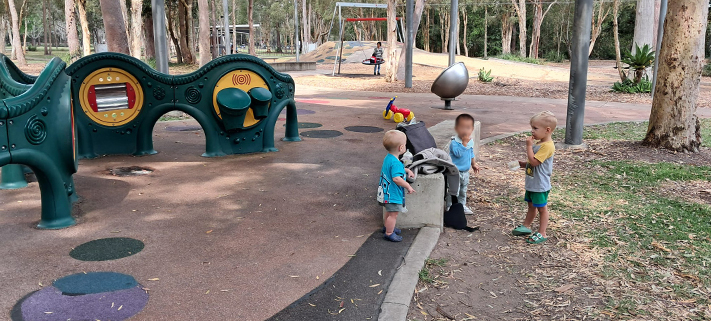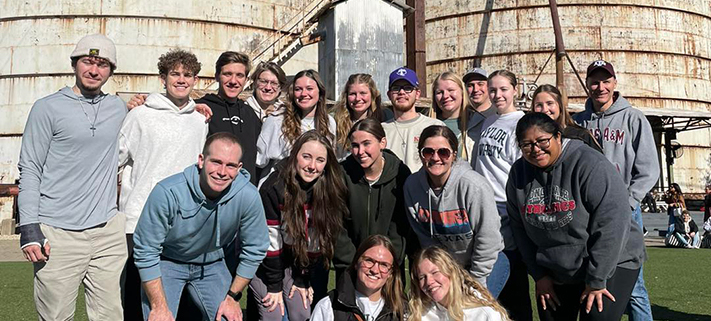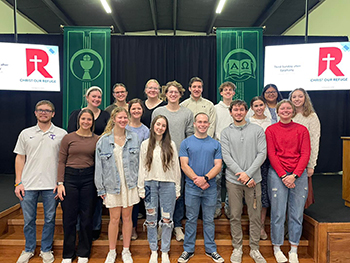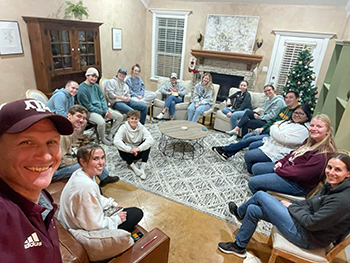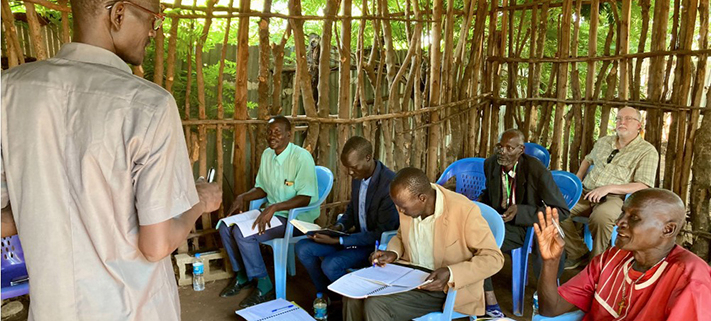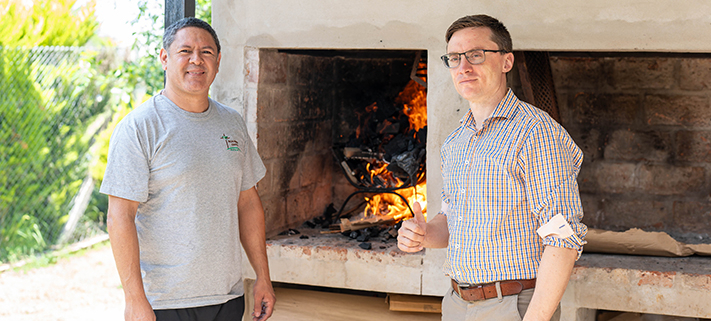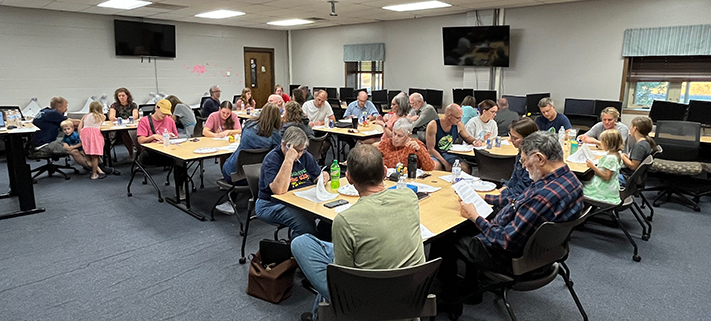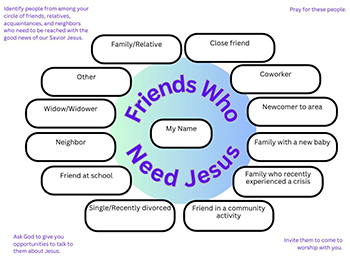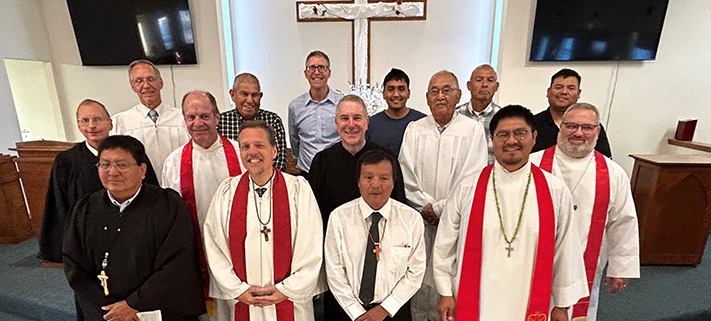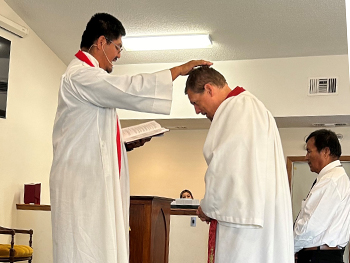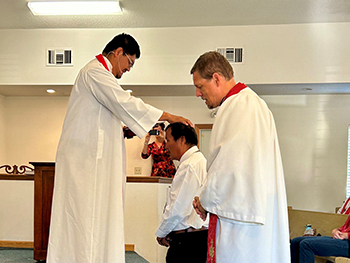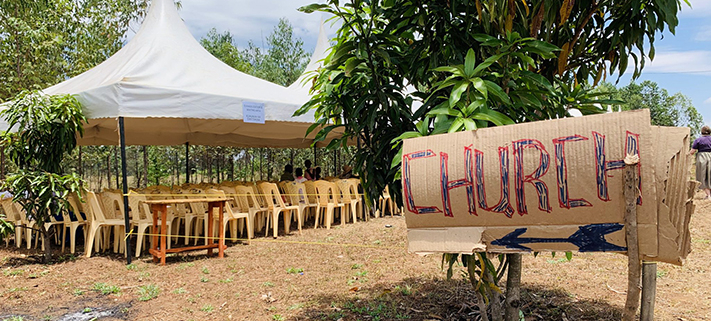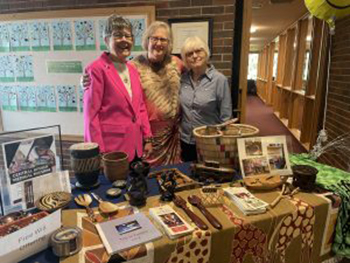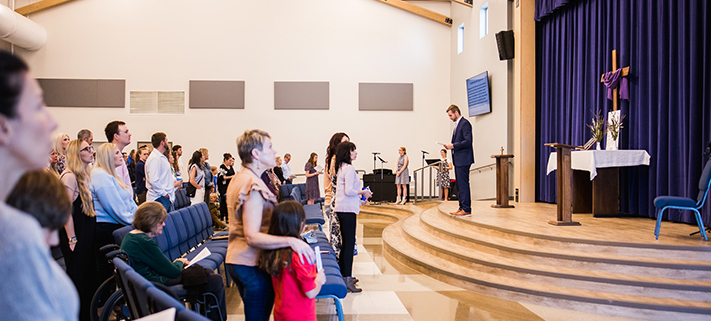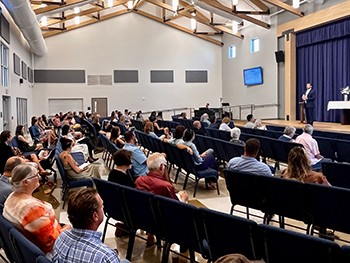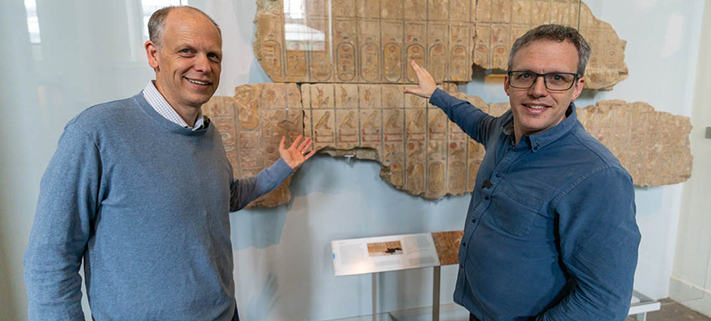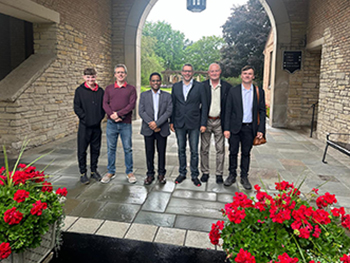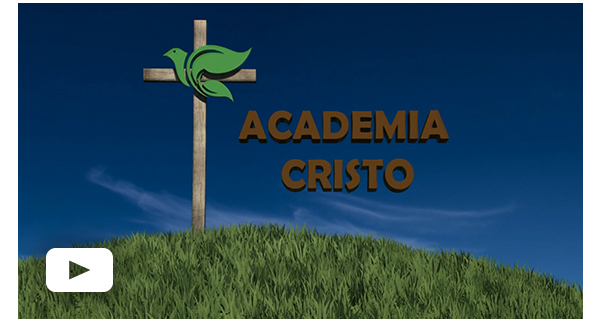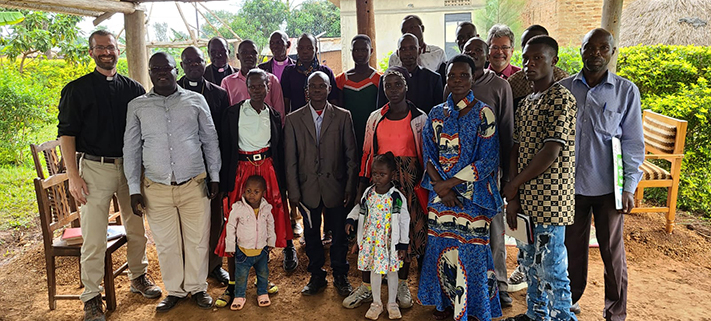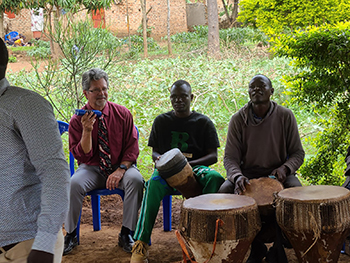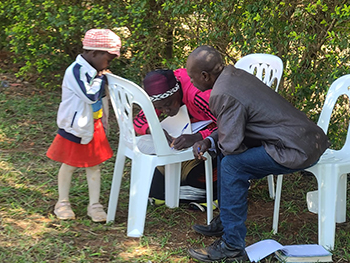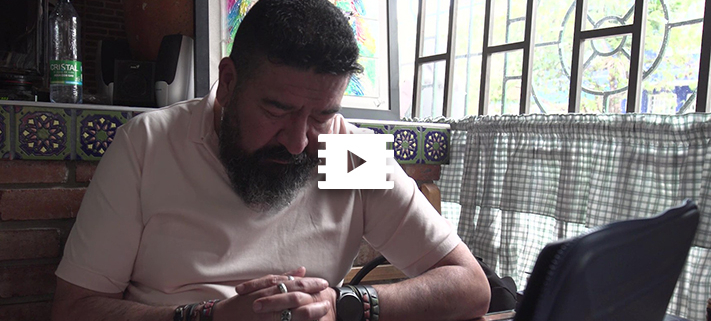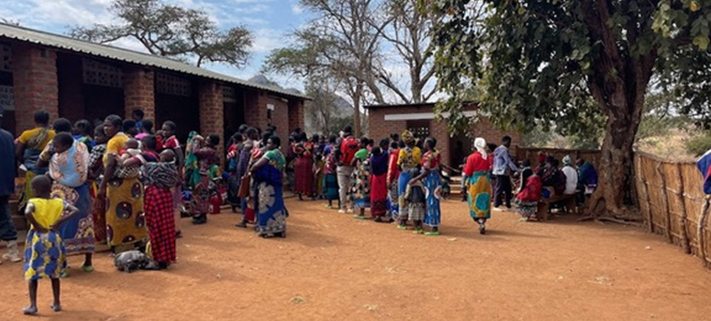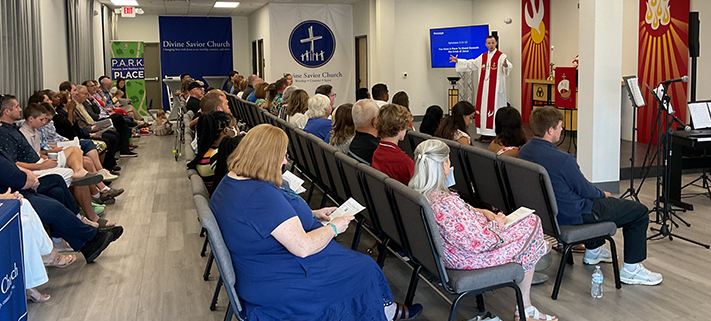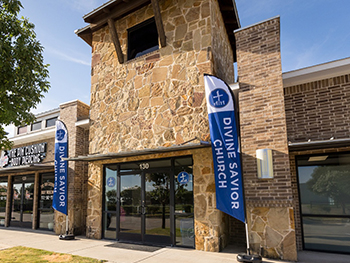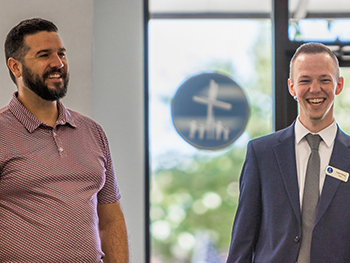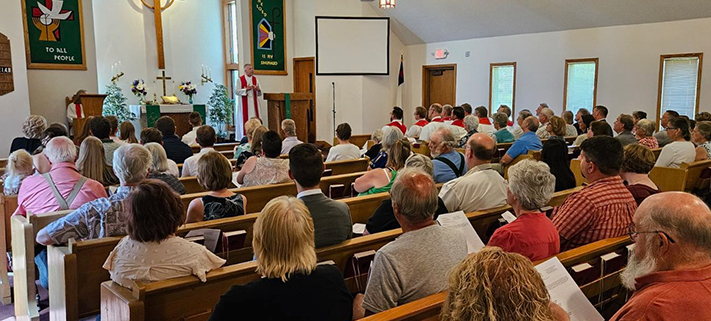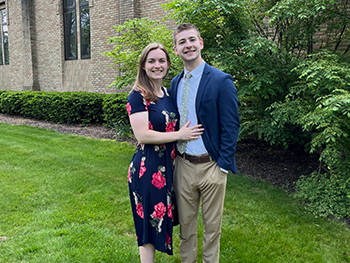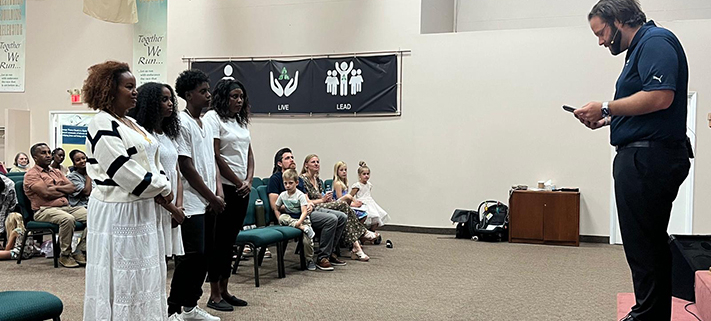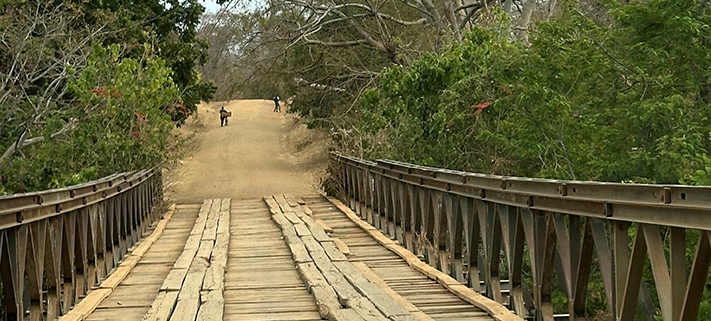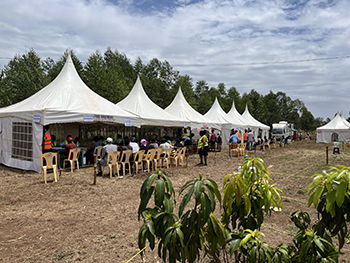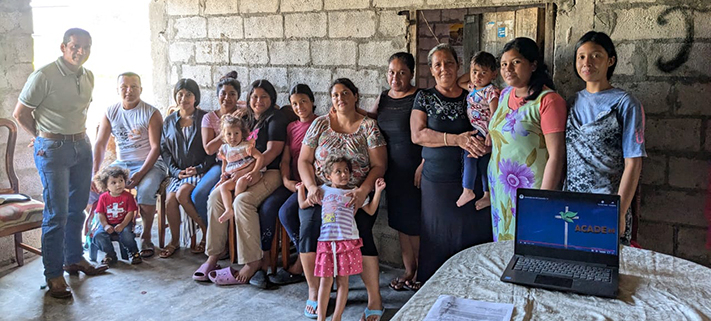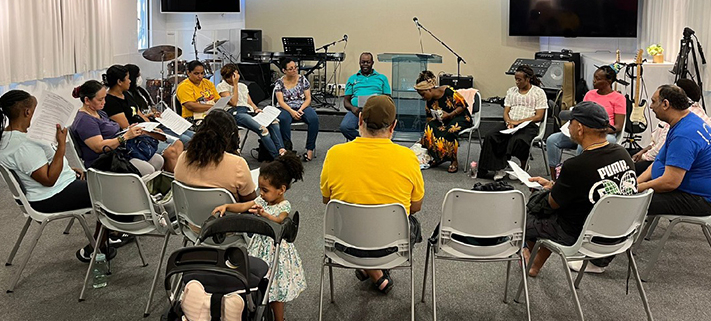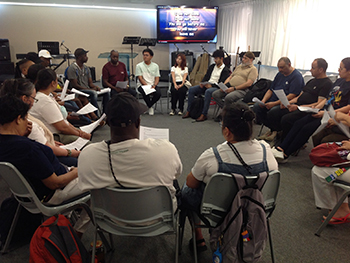More Worship Words to Wrestle With
Authenticity
Perhaps you’ve grown tired of hearing about the importance of being authentic. People value this virtue so highly in our day that authentic was the Merriam-Webster Dictionary’s 2023 Word of the Year.
As a result, you might recoil a bit if someone were to suggest that your church’s public worship needs to be more authentic. I completely understand. Our world mostly operates with a very narrow understanding of authenticity. The same Merriam-Webster Dictionary that named authentic its 2023 Word of the Year offers this as its primary definition: not false or imitation, real, actual. Something is authentic when it corresponds—rather than conflicts—with some underlying reality.
That raises an important question, however. How is that underlying reality determined? For many, what makes something authentic is simply that it is thought, desired, or felt internally. What makes something inauthentic is when it is influenced by external expectations from society, parents, religion, etc. This explains Merriam-Webster’s secondary definition for authentic: true to one’s own personality, spirit, or character. In the modern way of thinking, something is authentic if it corresponds with our inner psychological conviction.1
This view of authenticity is expressed in common phrases like, “Be true to yourself,” “Follow your heart,” and “You do you.” In the name of authenticity, an increasingly wide array of behaviors are justified in our day.
So I understand why authenticity gets a bad rap. That being said, there are certainly worse things people could be looking for in our public worship. Perhaps we should be encouraged by the fact that more and more are craving authenticity in a world where more and more is fake.
In a world where so many are searching for authenticity, Christians have something to offer.
We can offer the world a better version of authenticity than the one many have settled for—a more authentic authenticity, if you will. We know that true authenticity comes not when outward actions correspond with inner psychological conviction. The underlying reality for true authenticity is divinely revealed truth. We humbly admit with Augustine, “I cannot myself comprehend all that I am,” even as we sing with the psalmist, “You have searched me, LORD, and you know me” (Psalm 139:1).2
This superior authenticity that springs from external revelation rather than inner conviction can be a blessing to our worship. In a world where so many are searching for authenticity, Christians have something to offer. Be advised, however. As we pursue authenticity in our worship, we will naturally bump into other characteristics of public worship that are just as worthy of our pursuit. The point is not that these other traits are in conflict with authenticity. Rather, there will naturally be a healthy tension between them.
Authenticity and Relevance
A recent first-time worship guest indicated how much she appreciated our service. It was different from the last church she belonged to, which, according to her, was “stuck in the past.” I remember the somewhat reticent and infrequently-attending husband of a newer member who thought it was so great that I had mentioned Kanye West in a sermon. I can recall similar sentiments being expressed over the course of the ten years I’ve spent at the mission congregation I serve. People sensed that God’s Word, written so long ago, still had something to say. They saw how it mattered in their everyday lives. Even though it’s a word I’ve only heard used by church leaders and professionals and not the average person in the pew, I think what these people were getting at is that our worship had relevance.
Relevance is a good thing. Relevance is a worthy goal to pursue for our worship. We know that the “alive and active” (Hebrews 4:12) Word of God is relevant. So if that relevance is difficult for people to perceive, something might be off. As pastors preach sermons and churches speak about their public worship to encourage the unchurched to come, it’s good for them to demonstrate they understand the experiences of ordinary people.3 If there are questions people want answered or problems people want solved, it’s only natural that a pastor would want them to see how the Word of God can help.
It’s also very easy for there to be some tension between our pursuit of relevance and our pursuit of authenticity. While people expect the church to know what’s going on in the world, they also expect what’s discussed at church to be different what’s discussed in the world. If sermons and services are frequently playing off the latest trends in pop culture, we end up giving the impression that we’re suffering from a relevance inferiority complex. There is such a thing as trying too hard.
Young people are especially good at detecting when someone is trying to prove their relevance in an inauthentic way. Research shows that younger generations “tend to respond negatively to pop-song-covers, movie-clip illustrations, and cheeky sermon series titles”4 for this very reason. While young people may be interested in knowing that their pastor is at least remotely aware of what they are paying attention to, they also expect him not to be paying attention quite as closely as they are.5
An unbridled pursuit of relevance often fails the authenticity test even according to the most basic definition of the word. It can easily feel fake. Perhaps more importantly, our pursuit of relevance may reflect and reinforce the mistaken understanding of authenticity so common in our day. We can easily give undue weight to the very same inner psychological conviction that many see as the measuring stick for authenticity. Yes, when people walk through our doors, there are needs they already feel. There are problems already weighing them down. There are issues already of interest to them. A modern view of authenticity would say that those inner thoughts, feelings, and desires are real and reliable simply because they exist. This ignores the fact that what we think, feel, and pay attention to is constantly being shaped by thousands of imperceptible, external forces. The modern understanding of authenticity is an illusion.6
An unbridled pursuit of relevance often fails the authenticity test.
As a result, we might think our real problem is one thing when in fact it is something different or deeper. Thus, Jesus doesn’t just meet whatever needs we already feel and solve whatever problems we already know we have. Instead, he often “comes to dash our silly hopes and to expose our felt needs as trivial, in order to give us new ones that are far greater, and then to satisfy those beyond our wildest dreams.”7
Yes, we desire relevance because we are confident that the Word of God addresses the real needs of real people. We also desire authenticity because the real needs of real people may be really hidden to them.
Authenticity and Excellence
Perhaps you’ve received the same question I have. People who are new to your church learn that you follow a set schedule of Scripture readings that determine the focus for each service. They realize that many other churches, including many in our church body, follow the same schedule. This leads them to wonder if the sermon that goes with one of those readings each week is also provided. “Do they just send it out each week via email?” “What day does that usually show up?”
Maybe the question is prompted by a reflexive desire for efficiency. Something doesn’t sit right about the idea that all those pastors are doing all that same work all at the same time. I’d like to think those questions also flow from some sort of recognition of excellence. If they’ve had to do any sort of public speaking, they can probably guess how much time it takes to study for and then write and then memorize a twenty-minute talk every week. They also know that you have other things to do. They can tell, based on the finished product, that you take the exercise quite seriously and put more than a little thought into it. I would hope that they’re asking those types of questions at least partly because they’re somewhat impressed.
Perhaps you’ve also discovered what I have. You happen to be sitting in closer proximity than usual to someone in your congregation. During a hymn you notice that they have a nice voice and can carry a tune. Yet for some reason they aren’t in the choir. Or you’re talking with a member when they spill the beans that they took more than a decade of instrumental lessons and played in various ensembles in school. Yet they’ve never expressed interest in playing for church. The reason for both: they don’t think they measure up to the church’s standards.
Excellence is a good thing. Excellence is a worthy goal to pursue for our worship. For pastors and other paid staff, we ought to pursue excellence not only for its own sake but to send an important message to those who chip in only after they clock out from their day jobs: the gospel deserves our very best.
It’s also very easy for there to be some tension between our pursuit of excellence and our pursuit of authenticity. Not that long ago, an unbridled pursuit of excellence may have meant certain roles in public worship would only be filled by one person in the room—the person with the greatest gifts. Now an unbridled pursuit of excellence could easily lead those same roles to be filled by no one in the room at all.
The pastor who wants his preaching to be the very best has access to the sermon libraries of the most respected and influential preachers in the country, in most cases free of charge. There’s a reason some preachers draw audiences of thousands, and it isn’t merely because they are scratching people’s itching ears. The temptation to imitate and even plagiarize is real. The continuous improvement of generative AI technology will continue to present pastors with nearly limitless possibilities for pursuing excellence in their preaching.8
Churches who want their music to be of the highest quality no longer need to depend on the organist or pianist who fumbles through hymns. As nice as MIDI files and audio recordings have been, now performance recordings with full orchestration and pristine vocals exist for just about any hymn we might pick. Even if playing a recording feels a bit canned, it’s not hard to imagine the day when audio technology can be used to artificially enhance the sound of our vocalists and instrumentalists.
There is such a thing as trying too hard.
The possibilities for achieving excellence are endless. They may not all serve our desire for authenticity, however. As much as I’ve been somewhat flattered by the newer member who’s impressed by the quality of the sermon each week, I’m equally flattered by the member who occasionally is surprised to find out that the sermon is written out beforehand at all. It sounds enough like me—the me they know and converse with outside of Sunday morning—that they simply assumed I was speaking off the cuff.
As much as I appreciate those who are reluctant to use their musical gifts out of fear that they don’t measure up, I’ve seen the way one ordinary musician’s willingness to go out on a limb has encouraged others to do the same. As much as I want every note heard in public worship to be well rehearsed and right on pitch, I’ve seen the beneficial effects when a few of them are not. When excellence sometimes falters, authenticity often flourishes. Both members and guests get the message: This is us, and we are this. We’re giving our best effort, but we aren’t putting on airs. We’re trying our best, but we aren’t beholden to whether or not you are sufficiently impressed.
Yes, we desire excellence because the gospel deserves our best. We also desire authenticity because the gospel deserves our best.
Authenticity and Idealism
I’m by no means an expert on the topic, but I think I can make a pretty good case that the ideal instrument for leading public worship is the organ. The sustained pitches and the layered tones lead congregational singing in a way that no other instrument or set of instruments does.
I think I can also make a pretty good case that the ideal way to experience the psalms is by chanting them. Short of having access to the music to which they were originally set, chant is the best we can do. As much as I love the variety of styles found in Christian Worship: Psalter, something is lost when a metrical paraphrase or melodic versification takes us away from the direct, biblical text.
I can give you my opinion of what’s ideal for all kinds of facets of public worship: from the chancel furnishings to paraments and vestments to musical style and instrumentation to which parts of the service are spoken and which are sung.
Idealism is a good thing. Idealism is a worthy goal to pursue for our worship. In a world dominated by pragmatism, a little idealism isn’t the worst thing. Instead of reflexively asking “What works?”, it’s good to ask, “What’s best?”
It’s also very easy for there to be some tension between our pursuit of idealism and our pursuit of authenticity. If an unbridled pursuit of what is excellent might cause us to act in a way that just isn’t us, an unbridled pursuit of what is ideal might cause us to act in a way that just isn’t us yet.
When the church where I serve started a decade ago, we worshiped in a strip mall storefront. From day one, we had access to the library of audio recordings that went with our last hymnal, including the ones that made use of organ. But something felt a bit off about using those recordings in a room that very obviously didn’t (and even couldn’t) have an organ in it. Regardless of what might be the ideal instrument for leading worship, we used the piano recordings because they were more authentic.
From the very first day, I thought it was important to include the psalm of the day in our services. Back then, all we had in our hymnal were chant settings. Since that style of music would have been difficult to pull off and completely foreign to nearly everyone in the room, we spoke the verses of the psalm responsively for years.
I can think of plenty of examples of things that were less-than-ideal in those early days of our church. Our chancel furniture, banners, and paraments were all hand-me-downs. Our audio system was cobbled together from a variety of sources. We sang a small repertoire of hymns over and over again, leaving hundreds of treasures untouched. Even though much of this may not have been ideal, it was at least aimed in the direction of the ideal. What we did from day one allowed us to grow toward what was more ideal. In the meantime, it was authentic. The humble, simple things we did sent the message that we weren’t getting ahead of ourselves. It let people know we were headed somewhere and that they could be part of the journey.
Yes, it’s good to be aware of what is ideal. It’s also a blessing when being authentic means recognizing we aren’t there yet. It’s exciting to know that, regardless of how close to the ideal we might be today, we have the opportunity to be one step closer tomorrow.
I recently watched a video that was simultaneously impressive and eerie. It was a video of me delivering a devotion I had written, with one significant modification. AI had been used to change the video from English to Spanish. I’m assuming the translation was impeccable. The voice delivering the Spanish sounded just like mine. Even the movement of my mouth and facial muscles had been altered to make it look like I was really speaking the Spanish words. It wasn’t perfect, but it was close enough that I could have easily fooled someone into thinking I was bilingual.
Such advances in technology will no doubt provide some exciting opportunities for sharing the gospel. They probably also guarantee that people won’t stop craving experiences that are authentic. This, too, provides an exciting opportunity for those who can offer people a more authentic authenticity than what the world offers. God bless you as you wrestle with the ways in which authenticity can be a blessing for your worship.
By Jonathan Bauer
Pastor Bauer graduated from Wisconsin Lutheran Seminary in 2008. His first call was to Emmanuel in Tempe, Ariz. In 2014 he accepted the call to Good News in Mount Horeb, Wis., a mission church that dedicated its first building project in 2023. Jon serves on the WELS Commission on Congregational Counseling and the Institute for Worship and Outreach. He served on the executive committee of the WELS Hymnal Project.
1 Cf. Carl Trueman traces modern notions of authenticity back to Rousseau. Cf. Trueman’s The Rise and Triumph of the Modern Self (Wheaton: Crossway, 2020),105-128.
2 From Augustine’s Confessions, quoted in Branson Parler’s Every Body’s Story (Grand Rapids: Zondervan, 2022), 51. Parler has a chapter called “The Myth of Individualism” in which he offers a more concise account of the development of modern notions of authenticity compared to Trueman’s.
3 The service introduction for the Third Sunday in Advent found in the WELS Foundations resources provides a good example: “Multiple studies have proven that the holiday season exacerbates mental health issues. For some, the pressure to have ‘a perfect Christmas’ can be overwhelming. For others, their loneliness is amplified. Such people need a real Christmas, one that results in great joy. But joy is not the same thing as happiness. It is infinitely better. Happiness is an emotion. Joyfulness is a condition. Happiness comes from your circumstances. Joyfulness comes from Christ assuring you of his abiding love and your glorious future. Therefore, happiness—’holiday cheer’—is fleeting. Joyfulness is enduring.” If someone were to see that paragraph as part of a preview and invitation to that Sunday’s service, they would not have a hard time seeing how that service would be relevant to their life.
4 Jared Wilson, The Gospel Driven Church (Grand Rapids: Zondervan, 2019), 30.
5 It’s been a few years already since church leaders were obsessing over reaching and retaining millennials (also known as Gen Y). Now the attention has shifted to Gen Z. Pretty soon it will shift to Gen Alpha. But young people have been warning church leaders since the days when Gen X was the target: “You may think that fashionably cutting-edge liturgies relate to us on our level, but the fact is, we can find better entertainment elsewhere… We see right through it: it’s up-to-date for the sake of being up-to-date, and we’re not impressed… We know intuitively that, in the cosmic scheme of things, the stakes are too high for that” (Sarah Hinckley, quoted in Michael Horton, A Better Way. Grand Rapids: Baker, 2002, p. 225).
6 “We are blind to how much of ourselves we owe to others, a convenient blindness that facilitates our continuing use of consumption to feed the myth of autonomy. This is the noble lie of autonomy and self-directedness that casts a veil over the ugly truth of the commodification of selfhood, a truth that makes good on C.S. Lewis’s warning that ‘the power of Man to make himself what he pleases means…the power of some men to make other men what they please.’” (Christopher Watkin, Biblical Critical Theory, Grand Rapids: Zondervan, 2022, pp. 572-573).
7 Horton 60.
8 E.g., “Hey Siri, write me a two-thousand word sermon on the Gospel for Lent 3 with Tim Keller’s substance and my style.”
The last newsletter…
This is the last issue of Worship the Lord. Coming later this fall, WELS Congregational Services will offer a new e-mail newsletter called Devote Yourself, which will focus on providing ministers of the Word with helpful articles and practical approaches to teaching, preaching, and leading worship. Subscribe today at welscongregationalservices.net/subscribe-devote-yourself.
Learn about how WELS is assisting congregations by encouraging worship that glorifies God and proclaims Christ’s love.
WELS Commission on Worship provides resources for individuals and families nationwide. Consider supporting these ministries with your prayers and gifts.
